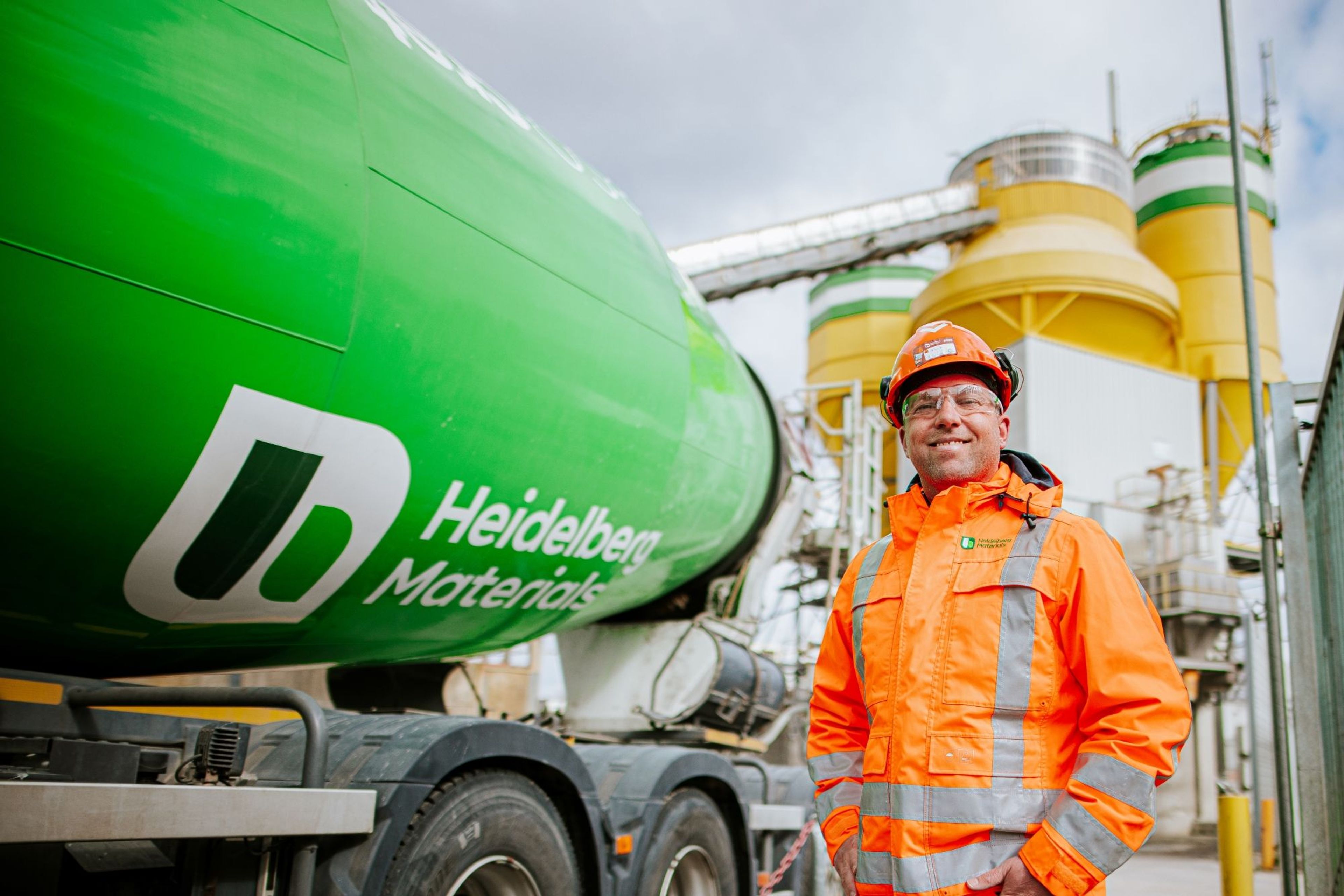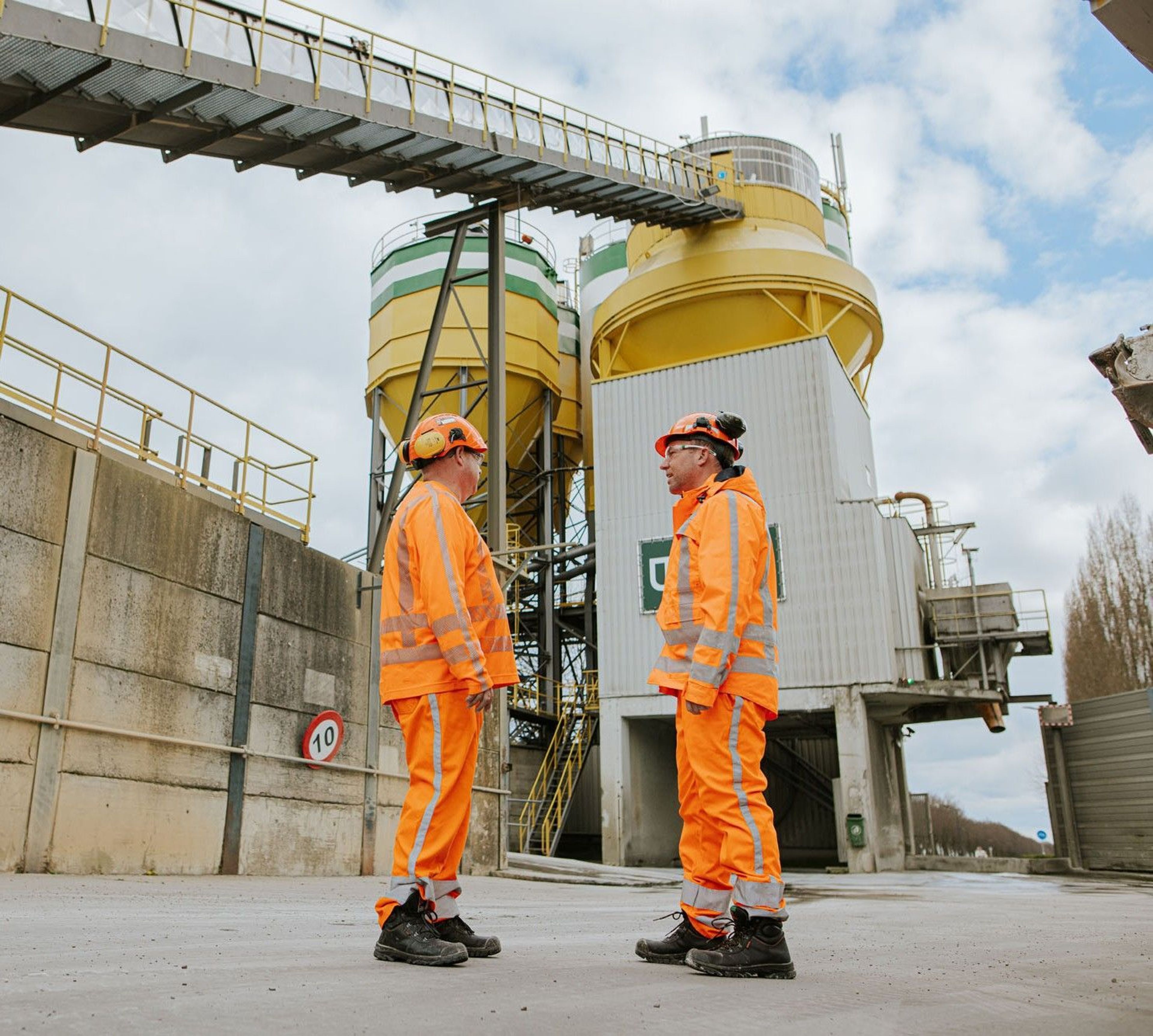Heidelberg Materials & Colbe
'We can now continue building on a positive working environment'
Working in concrete makes for high demands: long days, physically demanding work, and an ageing workforce. At Heidelberg Materials, this led to an increase in work-related absenteeism. Time for a new approach that better fits the organisation they want to be.

Heidelberg Materials is one of the world's largest integrated producers of building materials, with approximately 2,200 employees spread across 86 locations in the Netherlands and Belgium. The Dutch part of the organisation has more than 360 employees, working in cement factories, concrete plants and the sand and gravel trade.
The sector involves physical work, long days and an ageing workforce. Mark van Dongen, HR Business Partner at Heidelberg Materials, saw the tension between tradition and change. “Younger employees have a completely different mindset from the generation that is now retiring. That makes it difficult to simply redesign our processes.” But the need was there, he emphasises. “We saw sickness absence rising and realised: our current approach doesn't offer the solution we need.”
That reality called for change. Not only in work processes, but especially in the way the organisation dealt with health and absence.
Creating personal connections
The absence management approach at Heidelberg Materials had been centrally organised for years. Employees reported sick to HR, remotely and anonymously. “That felt safe for employees, but it prevented having real conversations about, for example, the underlying cause of sickness notifications and about employability,” Van Dongen explains.
This approach no longer suited the organisation Heidelberg Materials wanted to be: one with more connection between managers and teams, and more room for personal contact. “We decided that managers needed to take a more active role,” Van Dongen says. “That required a cultural shift - and in a traditional sector, that's easier said than done.”
.jpg)
.jpg)
New role for managers
To make that shift, Heidelberg Materials called in the help of Colbe. Together they developed a programme for all managers, focused on their new role. The goal is to equip them to manage absence discussions, identify early signals, and support employees effectively.
“Through training, managers learn how to have the right conversation, how to ask probing questions and especially: how to look at possibilities instead of limitations,” Van Dongen explains. “Being ill happens, but we now focus on what is possible. That's a fundamentally different way of thinking.”
A concrete example of this is the welcome-back conversations that Heidelberg Materials has introduced. Every employee who has been absent due to illness, whether for one day or one year, must have a conversation with their manager before returning to work. “That helps employees to settle back into the organisation more quickly,” Van Dongen says.
Not all managers were immediately enthusiastic. “There was initially some reluctance,” Van Dongen acknowledges. “But Colbe's trainers understood our culture and knew exactly how to inspire our managers. They offered practical tools that were immediately applicable.”
“The training teaches managers how to look at possibilities instead of limitations. We now focus on what is possible. That's a fundamentally different way of thinking,” says Mark van Dongen, HR Business Partner at Heidelberg Materials
Better management, better conversations
The change delivered concrete results. “By talking to employees about absence more frequently, we can better identify who's at risk,” Van Dongen explains. “Operational managers have a better understanding of what's happening and know which follow-up actions they can take.”
Such conversations weren't the norm. However, the new approach gave managers better control over absence and offered improved insight into what was happening within the teams. Absence files were organised more clearly, enabling the organisation to get employees started more quickly with adjusted duties and working hours. Managers were now directly involved in supporting their team members, instead of everything going through HR.
“We notice that employees are more open to help and support more quickly,” Van Dongen explains. “That prevents long-term absence and strengthens team spirit.”
And the figures? “Within the Cement division, we've seen a declining trend since this year,” Van Dongen says. Absence rates remain relatively high, as is often the case in physically demanding sectors, but the trend is positive. “We seem to have more control.”
The power of the network
An important aspect of the collaboration is the breadth of the Colbe network. In addition to Zorg van de Zaak, Heidelberg Materials receives support from Endit, Skils, Shared Ambition, and Margolin, tailored to the individual needs of each employee.
“Having access to different specialists under one umbrella is invaluable,” Van Dongen explains. “The direct link to Endit for a second track, the psychologists from Skils who can bridge the waiting times in regular healthcare - that works well together and really makes the difference.”
This integrated approach suits the complexity of absence. The causes are diverse, so customisation is essential. “Colbe provides us with figures and advice about ways to improve,” Van Dongen says. This data-driven approach enables more targeted management.
“Having access to different specialists under one umbrella is invaluable. The direct link to specialists who can bridge the waiting times makes the difference,” says Mark van Dongen, HR Business Partner at Heidelberg Materials
.jpg)

Moving towards prevention
The success of the new approach encouraged Heidelberg Materials to invest further in preventive measures. “We want to continue supporting our managers in early identification of problems,” Van Dongen says. “We also want to make our employees more aware of their own role in their physical and mental health.”
The organisation is currently exploring, together with Colbe, how to invest more in prevention. The focus is shifting from reactive to proactive, from managing absence to promoting health.
“It's about everyone within our company understanding that wellbeing is a shared responsibility,” Van Dongen says. “This collaboration helps us not only to reduce absence, but also to create a positive working environment in which managers and employees strengthen each other. The first steps have been taken, and we look forward to continuing this progress.”
About Heidelberg Materials Nederland
Heidelberg Materials Nederland is part of Heidelberg Materials AG, the world's third-largest cement producer with headquarters in Germany. The Dutch company has more than 360 employees divided across cement factories, concrete plants and the sand and gravel trade. As part of a global organisation with 51,000 employees in more than 50 countries and annual revenues exceeding €21 billion, Heidelberg Materials Nederland supplies building materials for infrastructure projects, commercial buildings, and residential construction. The company places a strong emphasis on sustainability and aims for CO₂ neutrality, including through the development of innovative cement production processes with CO₂ capture and storage.
About Colbe
Colbe is the European network of specialists in health and wellbeing. We help people to feel better – and stay better – at work. Read more about us.
.jpg)